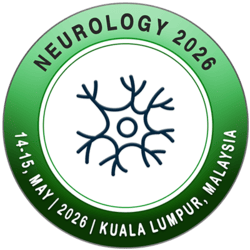Track: Brain Tumor and Neuro-oncology

Session Overview:
Recent Development:
Sub-Tracks:
The "Neuro-oncology and Brain Tumor" session at the Neurology 2025 will provide an in-depth exploration of the latest advancements in brain tumor diagnosis, treatment, and research. Participants will gain insight into recent breakthroughs in molecular and genetic classification, innovative diagnostic technologies, and emerging therapeutic strategies. The session will cover advancements in targeted therapies, immunotherapy, and minimally invasive surgical techniques. Additionally, it will address current challenges in patient management and strategies to enhance quality of life for those affected by neuro-oncological disorders. By featuring interactive discussions, case studies, and expert Q&A sessions, this session aims to equip healthcare professionals with the knowledge and tools to advance their practice and contribute to ongoing research in this evolving field.
Recent Development:
Recent advancements in neuro-oncology have seen significant innovations, including liquid biopsies, which enable non-invasive detection of circulating tumor DNA (ctDNA) in blood, allowing for early diagnosis and real-time monitoring of brain tumors without surgical intervention. AI-driven diagnostic tools are enhancing the precision of brain tumor diagnosis and treatment personalization through advanced imaging and pathology analysis. Optogenetics, a technique that uses light to control genetically modified neurons, is improving the accuracy of tumor resection while preserving healthy brain tissue. In treatment, immunotherapy, including immune checkpoint inhibitors and CAR-T cell therapy, is showing promise in targeting and destroying glioblastoma cells. Tumor Treating Fields (TTF), a novel approach using electric fields to disrupt cancer cell division, has become part of standard care, while personalized medicine, driven by genomic sequencing, tailors treatments to the genetic profile of each tumor. Notable cases and discoveries include prolonged survival in recurrent glioblastoma through combined immunotherapy, identification of new genetic mutations like IDH1/2 and ATRX, and the use of CRISPR-Cas9 technology to advance our understanding of brain tumor genetics and develop targeted therapies. These breakthroughs are expanding the frontiers of neuro-oncology, offering new hope for effective treatments and improved patient outcomes.
Sub-Tracks:
Glioblastoma Research and Treatment
Focuses on the most aggressive form of brain cancer, exploring novel therapies, survival strategies, and resistance mechanisms.
Pediatric Neuro-oncology
Addresses brain tumors in children, emphasizing unique biological characteristics, treatment challenges, and long-term care strategies.
Molecular and Genetic Profiling
Investigates the genetic mutations and molecular pathways driving brain tumors to develop personalized and targeted therapies.
Neurosurgical Techniques and Innovations
Explores advanced surgical methods, including minimally invasive approaches and intraoperative technologies for safer tumor resections.
Radiation Oncology and Radiosurgery
Examines cutting-edge radiation treatments, such as stereotactic radiosurgery, and their role in managing brain tumors with precision and reduced side effects.
Immunotherapy and Targeted Therapies
Focuses on the latest advancements in harnessing the immune system to fight brain tumors and the development of targeted therapies for more effective treatment.
Tumor Microenvironment and Angiogenesis
Examines the role of the tumor microenvironment and the processes of angiogenesis in brain tumor progression and treatment responses.
Neuro-oncological Biomarkers
Covers the identification and application of biomarkers for diagnosis, prognosis, and monitoring of brain tumors.
Neurocognitive and Quality of Life Assessments
Addresses the impact of brain tumors and their treatments on cognitive functions and quality of life, and strategies to manage these effects.
Innovations in Imaging and Diagnostics
Focuses on advances in imaging technologies and diagnostic methods for better visualization, characterization, and monitoring of brain tumors.
Scientific Highlights
- Neurology
- Neuro Anatomy
- Mental Health and Psychiatry
- Geriatric Neurological Disorders
- Neuromuscular Diseases
- Brain Tumor and Neuro-oncology
- Cerebrovascular and Critical Care Neurology
- Clinical Neurophysiology
- Central Nervous System
- Neuro-Ophthalmology
- Pediatric Neurology
- Neuroimaging and Brain Mapping
- Neurogenetics and Neurodegenerative Disease
- Behavioral and Cognitive Neuroscience
- Neurochemistry and Neuropharmacology
- Spinal Neurosurgery and Neural Transplantation
- Neuro Robotics and Neuro Modulators
- Addiction and Adult Psychology
- Brain Stimulation and Computational Neuroscience
- Neural Control of Micturition
- Parkinson's Disease


